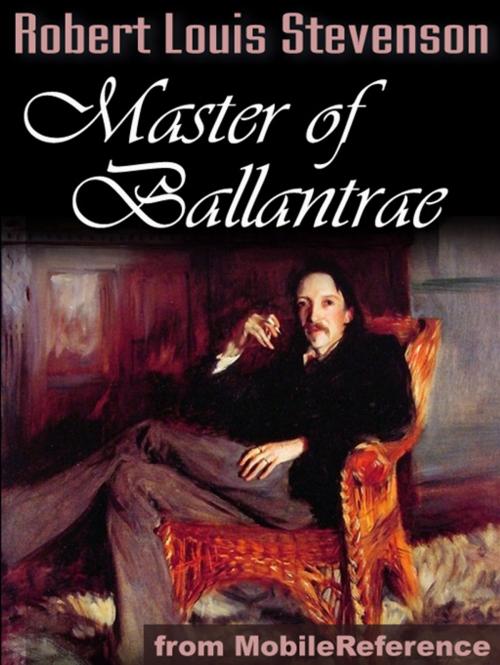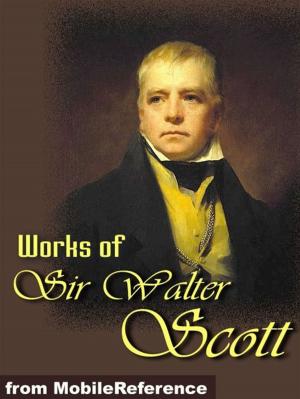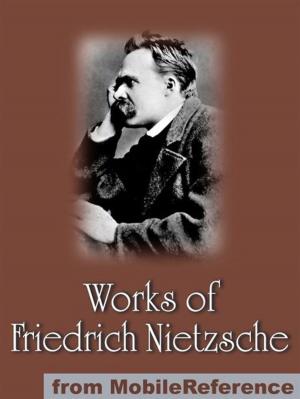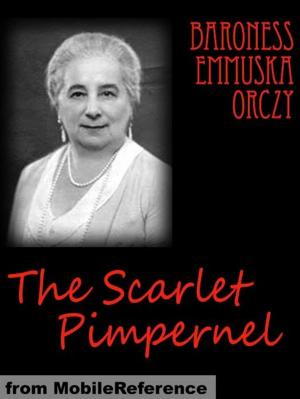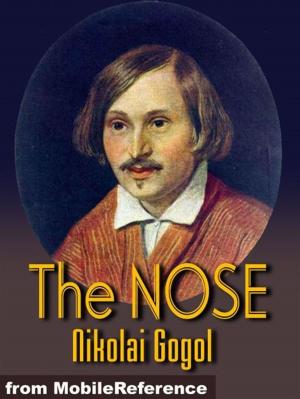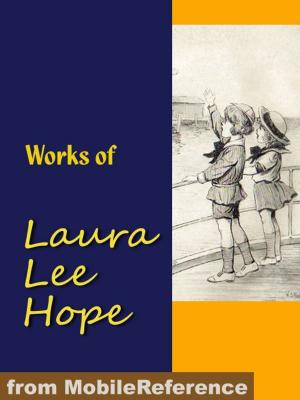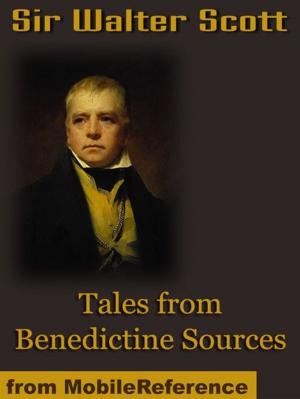| Author: | Robert Louis Stevenson | ISBN: | 9781605013763 |
| Publisher: | MobileReference | Publication: | January 1, 2010 |
| Imprint: | MobileReference | Language: | English |
| Author: | Robert Louis Stevenson |
| ISBN: | 9781605013763 |
| Publisher: | MobileReference |
| Publication: | January 1, 2010 |
| Imprint: | MobileReference |
| Language: | English |
The Master of Ballantrae: A Winter's Tale is a book by the Scottish author Robert Louis Stevenson, focusing upon the conflict of two brothers, Scottish noblemen whose family is torn apart by the Jacobite rising of 1745.The novel is presented as the memoir of one Ephraim Mackellar, steward of the Durrisdeer estate in Scotland. The novel opens in 1745, the year of the Jacobite Rising. When Bonnie Prince Charlie raises the banner of the Stewarts, the Durie family--the Laird of Durrisdeer, his older son James Durie (the Master of Ballantrae), and the younger son Henry Durie--decide on a common strategy: one son will join the uprising while the other will join the loyalists. That way, whichever side wins, the family estate will be preserved. Logically, the younger son should join the rebels; but the Master insists on going, and contemptously accuses Henry of trying to usurp his place, comparing him to Jacob. The two sons agree to flip a coin to determine who goes. The Master wins, and departs to join the Rising, while Henry remains to support King George II. The Rising fails, and the Master is reported dead. Henry becomes the heir of the estate, though he does not assume his martyred brother's title. At the insistence of the Laird, the Master's heartbroken fiancee marries Henry, to repair the Durie fortunes. Some years pass, in which Henry is unfairly vilified by the townspeople, who accuse him of betraying the rising (although they know perfectly well that he did not). He is treated with complete indifference by his family, since his wife and father spend all their time mourning the fallen favorite and ignore the younger son. The mild-tempered Henry bears the injustice quietly, even sending money to support his brother's bastard child and abandoned mistress, who abuses him foully. - Excerpted from Wikipedia, the free encyclopedia.
The Master of Ballantrae: A Winter's Tale is a book by the Scottish author Robert Louis Stevenson, focusing upon the conflict of two brothers, Scottish noblemen whose family is torn apart by the Jacobite rising of 1745.The novel is presented as the memoir of one Ephraim Mackellar, steward of the Durrisdeer estate in Scotland. The novel opens in 1745, the year of the Jacobite Rising. When Bonnie Prince Charlie raises the banner of the Stewarts, the Durie family--the Laird of Durrisdeer, his older son James Durie (the Master of Ballantrae), and the younger son Henry Durie--decide on a common strategy: one son will join the uprising while the other will join the loyalists. That way, whichever side wins, the family estate will be preserved. Logically, the younger son should join the rebels; but the Master insists on going, and contemptously accuses Henry of trying to usurp his place, comparing him to Jacob. The two sons agree to flip a coin to determine who goes. The Master wins, and departs to join the Rising, while Henry remains to support King George II. The Rising fails, and the Master is reported dead. Henry becomes the heir of the estate, though he does not assume his martyred brother's title. At the insistence of the Laird, the Master's heartbroken fiancee marries Henry, to repair the Durie fortunes. Some years pass, in which Henry is unfairly vilified by the townspeople, who accuse him of betraying the rising (although they know perfectly well that he did not). He is treated with complete indifference by his family, since his wife and father spend all their time mourning the fallen favorite and ignore the younger son. The mild-tempered Henry bears the injustice quietly, even sending money to support his brother's bastard child and abandoned mistress, who abuses him foully. - Excerpted from Wikipedia, the free encyclopedia.
